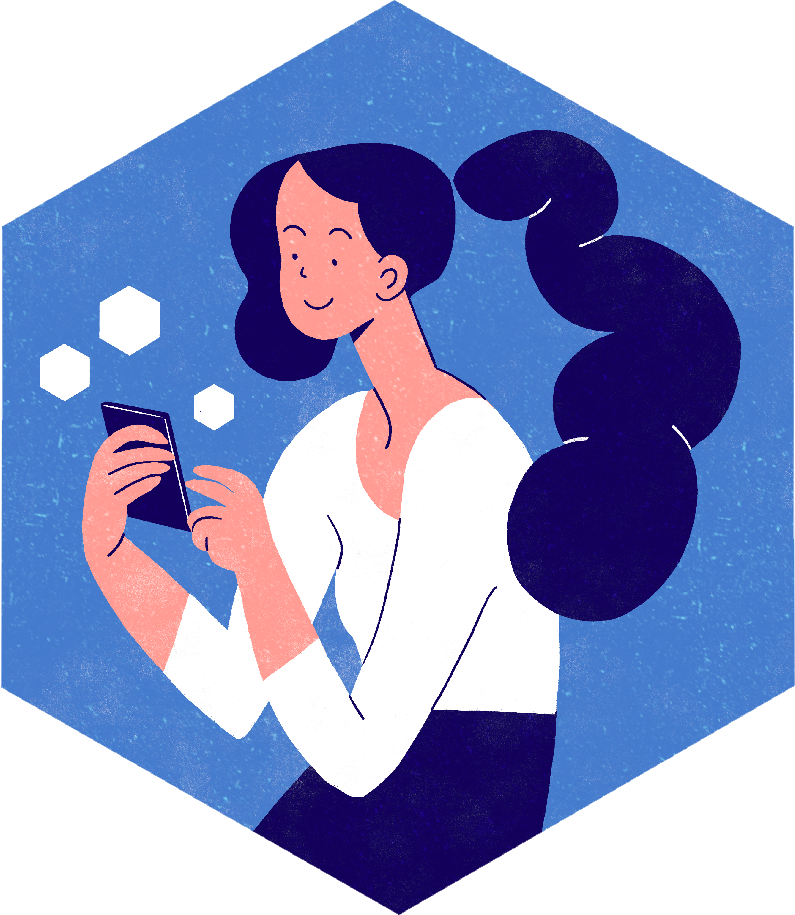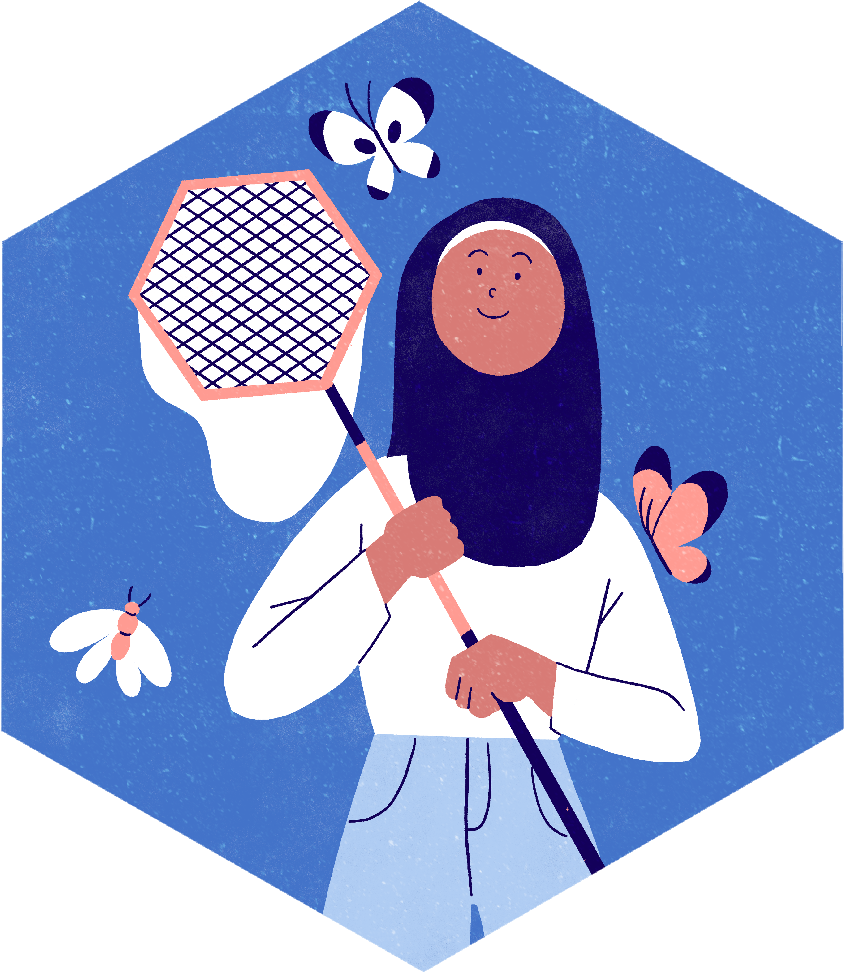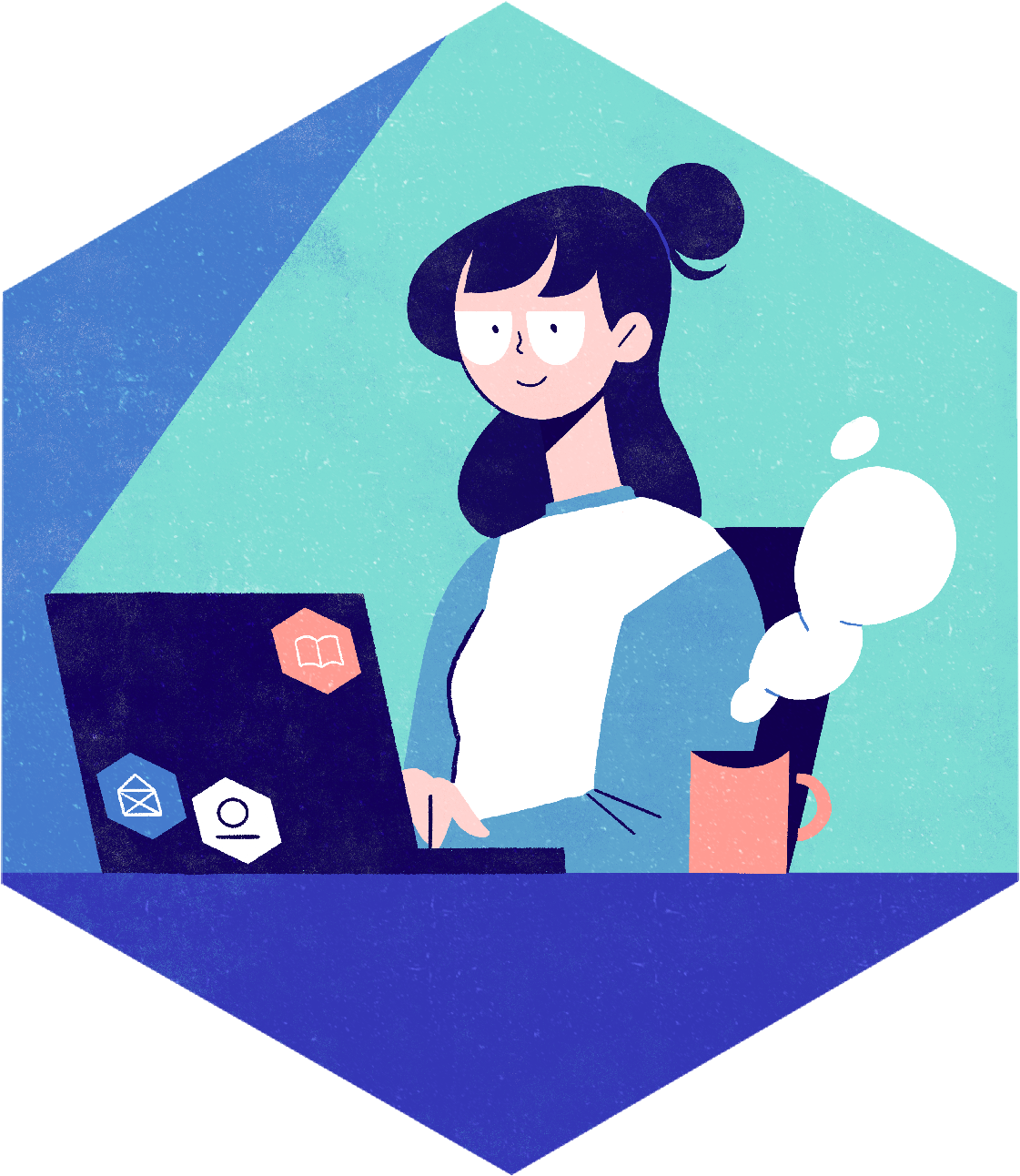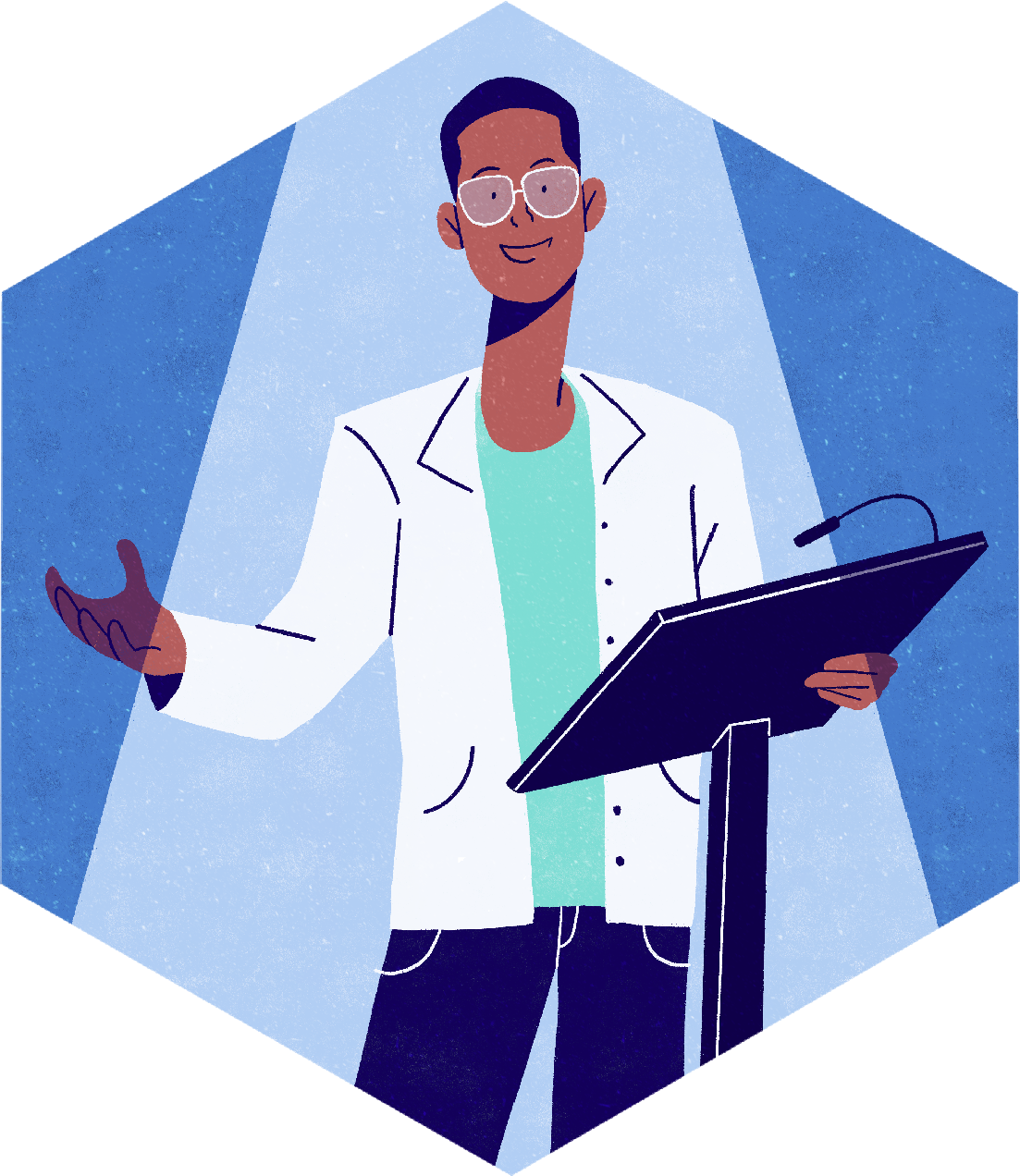
🔗 Program goals
We’re excited to open our second call for the rOpenSci Champions Program!
The program aims to support R developers from around the world who identify themselves as members of groups which are systematically excluded from the open software community.
Through this program, Champions will:
- Gain the skills to develop their own R package or;
- Gain confidence in submitting an R package for peer review or become a reviewer.
- Learn how to lead a workshop, event, or other rOpenSci activity on the topic of package development or software peer review in their local community.
- Connect with a supportive network of peers and mentors within the R ecosystem.
- Provide feedback to help rOpenSci to continue to host relevant, welcoming activities for R developers.
- Gain valuable and transferable skills and experiences relevant to careers in open source software.
We are looking six to nine Champions for this second group. We expect to co-create this iteration of the rOpenSci Champions Program with the selected applicants and refine future editions with their experience and feedback.
We look forward to receiving many applications and are committed to directing non-selected applicants towards other ways in which they can contribute to rOpenSci.
🔗 Eligibility

We are looking for people who work in STEAM fields, from anywhere in the world, who identify with the above and who:
Already have development knowledge with the R language and a solid idea for an R package they’d like to develop, or;
Have already developed an R package that is within rOpenSci scope, and want to have it peer reviewed through rOpenSci, or;
Want to become a reviewer for rOpenSci, and;
Have basic English communication skills (written and verbal).
🔗 About the program
The rOpenSci Champions Program is a 12-month-long program including cohort-based training, project development, and personal mentorship.
Champions will participate in:
A cohort-based training on:
- how to plan and facilitate engaging and inclusive workshops to support participants’ success,
- knowledge of various channels through which new members can engage in and contribute to rOpenSci and R projects, and
- technical skills in software development and review.
Personal and group mentorship:
- A series of meetings with mentors;
- Quarterly cohort calls.
🔗 What are the benefits of taking part?

By participating in this program, you can help rOpenSci and your community grow. In addition to training and personal mentoring, some other benefits you will receive are:
Learn and practice organizing and teaching workshops;
Learn and practice reviewer and developer skills;
Gain insights from other experts and expand your professional network;
Gain visibility through training, mentorship, and content creation;
Get recognition and acknowledgment for your work;
Co-develop this program and other rOpenSci projects by sharing feedback;
Become an active contributing member of the rOpenSci community;
Create content in the language of your community;
Empower members of your community by sharing what you learn;
Become a mentor to other members of your community.
We will provide a $1000 (USD) stipend to the selected community Champions that complete the program.
🔗 Program expectations

Champions are expected to complete training and attend meetings with their mentors and cohorts. After training, Champions will develop their own project. Projects may involve building a new package or going through the peer review process as an author or a reviewer.
Champions will also choose and perform several activities, such as running recruitment activities, giving presentations, writing blog posts, and organizing peer groups in their communities.
It is expected that Champions will promote participation in peer review and contribution to rOpenSci open source software, infrastructure, and documentation. They will also gather feedback on where rOpenSci’s current programming might be improved to meet the needs of all who wish to participate.
The estimated time commitment for each Champion is, on average, 16 hours per month (including trainings, cohort events, mentoring meetings, package development or review process, and preparing for and hosting events). The total time commitment for each Champion will vary based on the path and activities they choose to do during the program.
🔗 Templates
We create a template with the information we request in the form so that you can prepare before to fill out (there is a spanish version of this template).
If you want to work on a package that you are not the author or maintainer of, you need to have the endorsement of the developers. Here is a sample of the text that the email should contain, and here is the spanish version.
🔗 Frequently Asked Questions
🔗 I don’t have my own package to work on, can I apply with another’s package?
If the package already exists, it is possible to participate by sending the package in for Peer-Review. In this case the requirements would be:
- Written permission (can be an email) from the authors or maintainers of the package for you to take over maintenance and submit the package for review.
- A commitment from you to maintain the package for at least two years.
🔗 Does the program have a cost for participants?
No, the program it is free. The champions will get a small stipend for being part of the program after completion.
🔗 Can we apply as a team?
Not in this call. You can pick a team member and they can apply with the project. Please note that if the person has not contributed to the package previously, they will need to submit a note that they are part of the package team and have permission from the authors and maintainers to work on the package.
🔗 What does it mean to belong to a historically and systematically excluded group?
To belong to a historically and systematically excluded group means being part of a community or identity that has faced long-standing patterns of marginalization, discrimination, and disadvantage. It encompasses groups that have been historically oppressed, discriminated against, or denied equal opportunities based on various factors such as race, ethnicity, gender, sexual orientation, religion, disability, socioeconomic status, geographic location, or any combination thereof.
🔗 Can I propose more than one package?
The time involved in the program only allows you to work on one package. To help you decide which one to propose in the application, check that the package is within rOpenSci Peer-review scope or rOpenSci Stats Peer-review scope.
🔗 Can I change the type of project I want to do?
No. We seek to have a balance in the number of each type of project and we assign mentors also according to the type of project.
🔗 What does a solid idea mean for a package? What is the appropriate scope?
A solid idea refers to a well-conceived concept for the package that you can start work on immediately. After the program starts there will not be enough time to explore different ideas for packages and we don’t provide ideas for new packages.
These are rOpenSci Peer-Review and Stats Peer-Review scopes for packages. We expect projects related with research software.
🔗 I don’t have much experience programming in R, can I apply?
The program is designed for people who already have experience in R. We expect you to know how to work with projects, control structures and how to write functions. You do not have to have experience in writing packages (either your own or contributing to other people’s packages), but if you do all the better! However, we do expect you to have basic knowledge of git and GitHub.
🔗 I have a package that is under review on CRAN, which option should I choose?
If you want to work on that package during the program then the option to choose would be “Submit your package to the Peer-Review process”. However, we generally advise people to go through our review first and then submit the package to CRAN.


